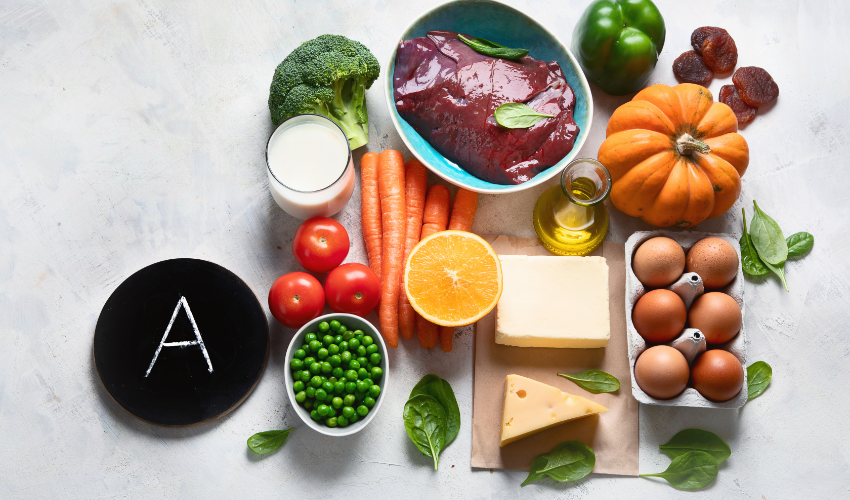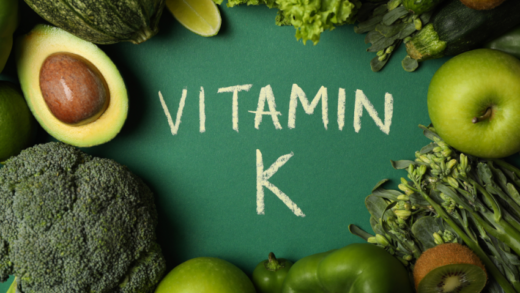Maintaining a healthy immune system is crucial for overall health and wellbeing. While there are many factors that contribute to a strong immune system, such as getting enough sleep, managing stress, and exercising regularly, proper nutrition is key. One essential nutrient that has been shown to play a crucial role in immune function is Vitamin A.
In this article, we will explore the power of Vitamin A for the immune system, how it works, and the best sources to incorporate into your diet.
What is Vitamin A and how does it work in the immune system?
Vitamin A is a fat-soluble vitamin that is essential for vision, skin health, and immune function. It is primarily found in animal-based foods such as liver, egg yolks, and dairy products.
In the immune system, Vitamin A plays a critical role in maintaining the integrity of mucosal surfaces, including the respiratory, digestive, and urinary tracts. These surfaces act as a barrier, preventing pathogens from entering the body. Vitamin A helps to produce a type of white blood cell called T cells, which help to identify and destroy foreign invaders.
Benefits of Vitamin A for the immune system
- Enhances the immune system’s ability to fight infections
- Helps to maintain the integrity of mucosal surfaces
- Supports the production of white blood cells
- Reduces inflammation in the body
- Helps to regulate immune responses
Sources of Vitamin A
There are two types of Vitamin A:
- Preformed Vitamin A: Found in animal-based foods such as liver, egg yolks, and dairy products
- Provitamin A carotenoids: Found in plant-based foods such as carrots, sweet potatoes, and leafy green vegetables.
Best sources of Preformed Vitamin A
- Liver: One of the richest sources of preformed Vitamin A, liver is a highly nutritious food that contains a host of other essential vitamins and minerals.
- Egg yolks: Another excellent source of preformed Vitamin A, egg yolks are also a good source of protein and healthy fats.
- Dairy products: Milk, cheese, and yogurt all contain preformed Vitamin A, as well as other essential nutrients like calcium and vitamin D.
Best sources of Provitamin A Carotenoids
- Carrots: Carrots are an excellent source of beta-carotene, which the body can convert into Vitamin A.
- Sweet potatoes: These nutrient-dense root vegetables are loaded with beta-carotene, Vitamin C, and potassium.
- Leafy green vegetables: Kale, spinach, and collard greens are all excellent sources of beta-carotene, as well as other essential vitamins and minerals.
FAQs
Can you get too much Vitamin A?
Yes, it is possible to get too much Vitamin A, especially from supplements. Excessive intake of Vitamin A can cause nausea, dizziness, and even liver damage. It’s important to get your Vitamin A from a balanced diet and not to overdo it with supplements.
Can Vitamin A help with skin health?
Yes, Vitamin A is essential for skin health and can help to prevent acne, improve skin texture, and reduce the signs of aging.
Is it safe to take Vitamin A supplements?
While Vitamin A supplements can be beneficial for those who are deficient, it’s important to talk to your doctor before taking any supplements, as excessive intake can be harmful.
Are there any risks associated with a Vitamin A deficiency?
Yes, a deficiency in Vitamin A can weaken the immune system, leading to an increased risk of infections. It can also cause night blindness, dry eyes, and skin problems.
How can I incorporate more Vitamin A into my diet?
You can incorporate more Vitamin A into your diet by eating a variety of colorful fruits and vegetables, particularly those that are high in beta-carotene. Good options include carrots, sweet potatoes, spinach, and kale. Eating liver, eggs, and dairy products can also boost your intake of preformed Vitamin A.
Conclusion
In conclusion, Vitamin A is a critical nutrient for a strong and healthy immune system. It plays a vital role in maintaining the integrity of mucosal surfaces, producing white blood cells, and regulating immune responses. By incorporating Vitamin A-rich foods into your diet, you can help support your immune system and maintain overall health and wellbeing. Remember to talk to your doctor before taking any supplements and aim for a balanced diet rich in a variety of colorful fruits and vegetables.
























